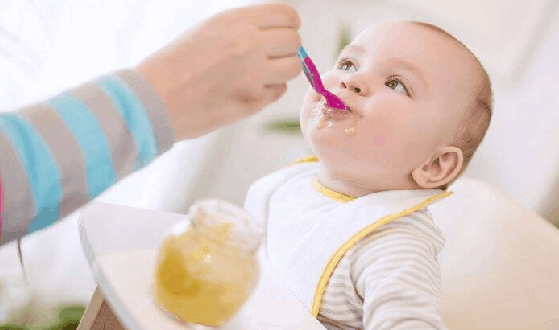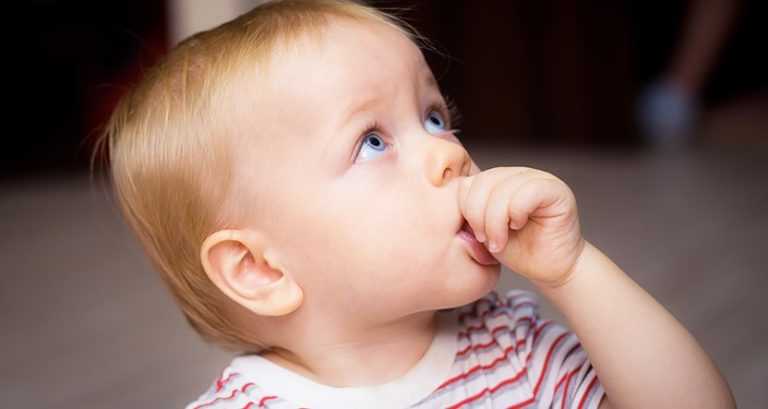As soon as you take your baby home, you have to start caring for their tiny mouths and gums. In order to keep your baby smiling and healthy, baby oral care should start even before the baby’s teeth come in.
New parents may not aware of newborn oral care methods. Luckily, there are lots of tips that will help you keep your baby’s oral health in excellent condition. Here are our top 5 infant oral care tips for mothers.
1. Don’t Engage Babies Sleep with Bottles
When you put your baby to sleep with a bottle, they may fall asleep with the bottle in their mouth. This results in the teeth prolonged exposure to the milk or other liquid in the bottle.
When this fluid is left to pool around the teeth, plaque can build up on the teeth. If your child constantly sleeps with a bottle, they can develop caries on their teeth from tooth decay. This is generally known as “baby bottle decay“.

The good news about baby bottle decay is that it’s completely avoidable. Keep your baby’s teeth healthy by avoiding put them to sleep with a bottle. If they feed at night, keep them awake while they drink from the bottle, then remove the bottle when they’re done. This limits the teeth’s exposure to the liquid and thus helps reduce plaque buildup.
2. Thumb sucking after a certain age can harm.
Kids suck their thumbs because it’s comforting and calming. Ultrasonography reveals that thumb sucking starts before birth as early as 15 weeks of contraception. The reflex of sucking disappears at 4 months of age. Some older children will retain the habit, which can cause severe dental problems.
While most Dentists would recommend breaking the habit as early as possible, it has been shown that as long as the habit is broken before the onset of permanent teeth, at around 5 years old, the damage is reversible.

3. Clean Your Baby’s Gums and Teeth
Even before your baby’s first teeth come in, there are infant oral care steps you can take to ensure that their mouth and gums are healthy. After your baby eats, wipe down their gums with a warm, wet washcloth or a damp piece of gauze wrapped around your finger.
You can clean your baby’s first teeth with a warm, wet washcloth, or use a soft-bristled toothbrush and water. This stops plaque from building up, which can result in tooth decay. Be sure to clean their gums as well.
At 18 months, you can start using a small (pea-size) amount of low-fluoride toothpaste when brushing your baby’s teeth. Your child should spit out the toothpaste, but shouldn’t rinse.
4. Get them to the Dentist On Time
Children don’t see a dentist for the first time until they are over two years old. However, this is actually much later than most dentists recommend. The American Academy of Pediatric Dentistry suggests that babies have their first dental visit within 6 months of the eruption of their first tooth or before they are one year old, whichever comes first.
Initial visits to your infant’s dentist are essentially informative, and the dentists can explain any questions that parents may have about caring for their infant’s teeth.

Scheduling your baby for regular dental visits for infant oral care as soon as their teeth come in means that any developing issues will be caught early. Finding these problems early means that your baby’s dentist can prevent any real, lasting damage from occurring to your child’s teeth.
5. Feed Them Healthy Foods and Drinks
The realm of infant dental care also extends into their diet. A healthy, balanced diet is a major component of healthy teeth and gums. Babies can usually start eating solid food at around 6 months of age, and they can eat a wide variety of foods, similar to what you and the rest of the family are eating.

Often, parents think that fruit juice is a healthier alternative than other sugary drinks for small children. However, fruit juices are often loaded with added sugar. Even juices with no sugar added still contain natural sugars from fruits.
It’s not advised for babies under 12 months to have fruit juice. That sugar can linger on your child’s teeth and become a feeding ground for cavity-causing bacteria. Stick to water or milk. Once you have a plan of action, infant dental care will become as second nature as taking care of your own teeth.
Making a concerted effort to lean and care for your baby’s new teeth will help set them up for a lifetime of healthy teeth. Make sure to schedule your infant’s first dental appointment in a timely manner within 6 months of the eruption of their first tooth or by the time they reach one year old.
References:
Expert opinion
Dr. Ankita Gada Dental Director of Sabka dentist says “Baby bottle decay most often attacks the front teeth. It can appear as visible signs of decay like black or brown spots on the tooth, but it can also cause swollen gums. If your baby shows any signs, be sure to book an appointment to get them the professional oral care”.
Dr. Manan Dhulia a Dental Director of Sabka dentist says “Be sure to start taking care of your baby’s teeth as soon as they start to come in. Your baby’s teeth usually start to erupt at around 6 months of age”.
Dr. Preethi Nagarajan Dental Director of Sabka dentist says “Making the right meal choices for your child can go a long way for their dental health. Avoid sticky or chewy foods that can get stuck to teeth and contribute to plaque buildup. Refined starchy foods like white bread or potato chips can also be bad for teeth.”





